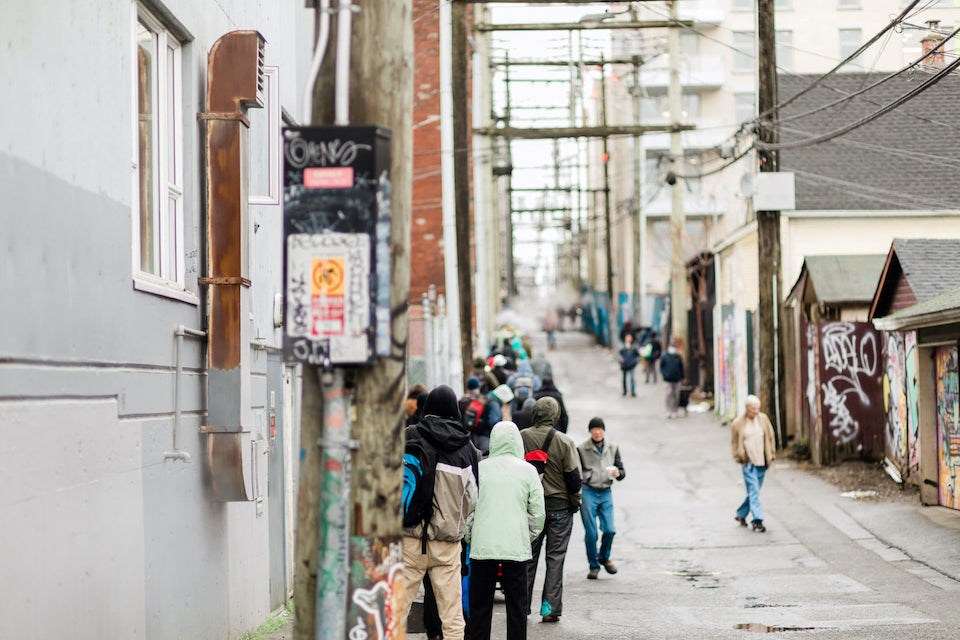Union Gospel Mission (UGM) in Vancouver is concerned about the effect that the incoming atmospheric rivers and forecast low temperatures will have on the un-housed population in the city.
"The cold and wet weather is dangerous for people who are experiencing homelessness and living outdoors, and they are often unprepared for it," says spokesperson Nicole Mucci.
The UGM shelter on East Hastings has 92 beds that the organization reports have been uncharacteristically full all summer and fall. Within the last 10 months, they say they have had to turn away an average of six people each night, totalling 1,949 people since January.
Why is it dangerous?
On nights when it isn't cold enough to prompt the activation of the Extreme Weather Response (EWR) shelters, UGM is concerned about where the people they turn away will go. They anticipate that by January they will be turning away 558 people a month.
"It's not a matter of if, it's when," says Mucci over the phone.
She says that this kind of weather is dangerous for the unhoused because individuals are consistently exposed to the elements like wind, rain, and low temperatures that weaken the immune system and make them more susceptible to illnesses like pneumonia.
The UGM operates an overnight men's shelter with a drop-in shelter during the day for people to dry off and get warm. During weather like this, they keep the drop-in shelter open as late as they're able. When they are forced to turn people away because they are at capacity, they offer tarps, coats, gloves, and covers for sleeping bags to keep people warm and dry.
What can be done?
However, Mucci reports that UGM is also dangerously low on winter equipment for both men and women. She says that a two-prong approach is needed to equip people for the weather and to create more space not just for shelters but for housing too.
As of noon on October 27, the city did activate a youth/young adult EWR shelter which will be open over the weekend, but Mucci says that long-term solutions are needed in addition to temporary reactions to extreme weather.
"It shouldn't be just for life-threatening cold," she says. Shelters are needed to protect from the elements that can make an already vulnerable population sick.
Mucci says that a number of the UGM shelter users are ready to move into housing and have money saved up for deposits but that there isn't anything affordable available for them.
"You can't call it a bottleneck if the bottle is full," she says of the situation.




